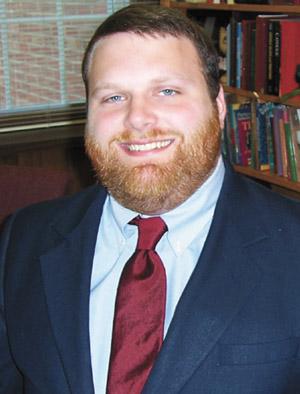
By Corey Close
Police swear to “serve and protect.” Medical personal swear to “Do good, or at least, do no harm.”
Military personnel swear that they “will support and defend the Constitution of the United States against all enemies, foreign and domestic.” Judges swear to “administer justice without respect to persons, and do equal right to the poor and to the rich.” Vocations of service oftentimes call upon those entering to swear by some code of ethics — to assure that they enter not for themselves but for the greater good which they will serve.
On Oct. 6, I will be ordained a deacon of the Church, and the night before I will make my oath for entrance into this sacred office. Just as police officers, doctors, soldiers and judges live their life by a code, I will as well. It begins as such: “I, Corey, with firm faith believe and profess everything that is contained in the symbol of faith, namely: I believe in one God, the Father, the Almighty, maker of heaven and earth ….”
Our oath is itself the creed, which we say every Sunday at Mass. I, for one, am deeply humbled to bind myself more closely to this oath in the vocation of the priesthood.
In the early fourth century AD, as the Church was just emerging from 300 years of persecution by the Roman Empire, it faced a new enemy: Aryanism. Aryanism taught that Jesus, while very special and powerful, was not God, but rather the greatest creature in God’s Creation. The Church, which had fought so hard against persecutions, was not about to see all that it had fought for lost. For if Aryanism prevailed, no one would know who Christ truly was, and all would have been in vain. The bishops of that time came together in the Council of Nicaea in 325 AD and formulated the bulk of the creed as we have it today. From that point forward, it has stood as the symbol of our faith, of what we believe. Throughout history there have been many such attacks on the faith, on what we know to be true about the person of Christ and of his Church, and the Nicene Creed has stood for that faith.
In most service professions, there can come a time when the person’s life, or at least his reputation, may come on the line to truly follow his oath. Police officers and soldiers certainly realize they may be called to make the “ultimate sacrifice” for their oath, while doctors and judges may be faced with tough moral dilemmas and temptations in order to truly uphold their oaths. Throughout the 2,000-year history of the Church, many have laid down their lives rather than give up the faith they hold so dear. From the early Roman martyrs, to the missionaries across the world, to those who, like Maximilian Kolbe, stood up to Nazi oppression and found their end in a concentration camp, the holy men and women who have preceded me in upholding the faith are remarkable to the point of awe.
Can I succeed where they succeeded? Could I die for this if the time came? It is because of their sacrifice that I have the faith today. Can I honor their sacrifice with my service, or will I tarnish it? These doubts are common to all service professions, and with that in mind, most oaths finish with the phrase: “So help me God,” knowing that a “Yes” to these questions is totally dependent on God’s help. Here is the final promise I will make on my ordination day:
Bishop: Are you resolved to shape your way of life always according to the example of Christ, whose body and blood you will give to the people?
Candidate: I am, with the help of God.
(Corey Close is a fourth-year seminarian studying for the Diocese of Davenport at the North American College in Rome.)








